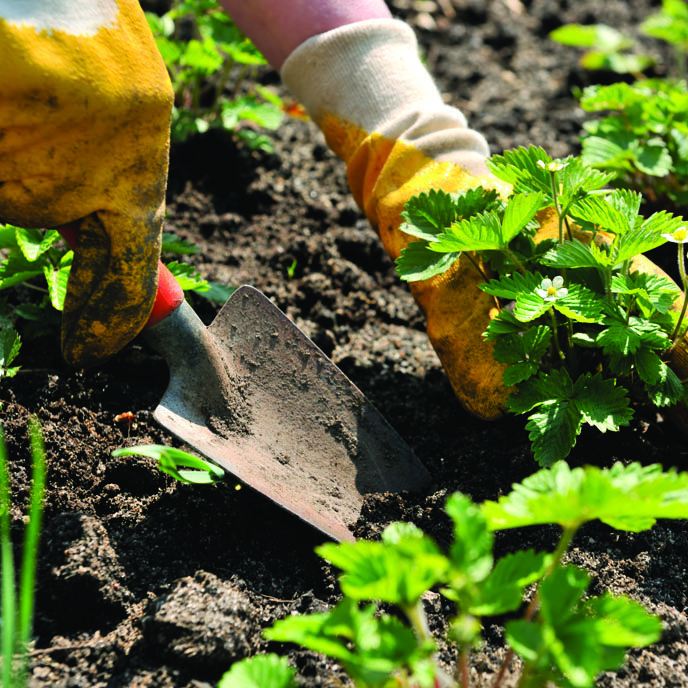Creative Gardening Ideas to Take Full Advantage Of Little Areas and Yields
Creative Gardening Ideas to Take Full Advantage Of Little Areas and Yields
Blog Article
Unlocking the Benefits of Horticulture: An In-depth Look at the Various Types and Their Influence On Health
Checking out the multifaceted advantages of horticulture reveals a spectrum of practices that significantly improve private health. From veggie and natural herb gardens to container and raised bed arrangements, each kind uses distinct benefits that extend past plain cultivation. These activities not just foster physical health via active engagement yet also add to psychological health by relieving stress and anxiety and motivating mindfulness. As we examine these varied horticulture techniques, it comes to be obvious that their impact can resonate on individual, social, and environmental levels, motivating a better check out just how these links develop a natural narrative of alternative health and wellness.
Kinds Of Horticulture

Blossom horticulture, one more preferred classification, stresses the visual allure of grown blossoms. This kind can enhance landscapes and promote biodiversity by bring in useful pollinators. Similarly, herb gardening includes expanding fragrant and cooking plants, contributing both to food preparation and natural treatments.
Container gardening deals convenience, making it possible for individuals with restricted room to take part in gardening by utilizing pots and planters. This approach is particularly popular in city setups. Increased bed horticulture, on the other hand, entails creating raised plots that improve dirt water drainage and availability, making it less complicated for gardeners to handle their plants.
Lastly, neighborhood gardening fosters collaboration among people in shared spaces, advertising social communication and collective responsibility. Each sort of horticulture offers unique objectives and caters to various choices, making horticulture a flexible activity that can be tailored to specific needs and atmospheres.
Mental Wellness Advantages
Taking part in various kinds of horticulture not only yields concrete rewards such as fresh produce and beautiful blossoms but also offers considerable mental wellness advantages. Research study suggests that gardening can be a powerful device for lowering tension, anxiety, and clinical depression. The act of tending to plants and growing a garden cultivates a feeling of purpose and success, which can boost overall psychological wellness.
Furthermore, gardening motivates mindfulness, as it calls for individuals to concentrate on the existing minute, whether it be planting seeds or supporting development. This mindfulness method can cause reduced rumination and boosted state of mind stability. The direct exposure to native environments during horticulture has actually additionally been linked to improved cognitive working and lowered sensations of tiredness.
Social communication plays a vital function in psychological wellness, and neighborhood gardening efforts offer possibilities for individuals to link with others, fostering a sense of belonging. The common experience of gardening can grow friendships and support networks, additionally reinforcing emotional durability.
Physical Health Conveniences
Many people might not recognize that horticulture also offers considerable physical health and wellness advantages. Taking part in horticulture activities requires a variety of physical motions, including flexing, lifting, digging, and growing, which collectively add to better strength, flexibility, and endurance. These activities can boost cardiovascular health and wellness by promoting an elevated heart rate, therefore reducing the threat of heart problem.
Additionally, gardening can act as a moderate-intensity workout, aiding individuals accomplish advised exercise degrees. Studies indicate that regular engagement in gardening can melt substantial calories-- around 200-400 calories per hour, depending on the important link intensity of the tasks executed. Such calorie expense is valuable for weight management and total metabolic wellness.
Furthermore, direct exposure to sunlight during gardening can help with the synthesis of vitamin D, which plays a crucial function in maintaining bone health and wellness and supporting immune function. In addition, the act of horticulture commonly involves functioning with dirt, which has been connected to prospective mental and physical health benefits due to the existence of helpful microorganisms. Gardening.
Social Links With Gardening
The common elements of gardening foster purposeful social connections amongst people. Neighborhood gardens, specifically, work as vivid centers where people from diverse backgrounds integrated, cultivating not just plants but also relationships. These common rooms urge cooperation, enabling people to trade knowledge, skills, and sources, consequently improving their horticulture experience and cultivating a feeling of belonging.
Interaction in horticulture activities frequently brings about the development of friendships and assistance networks. Individuals frequently unite for typical goals, such as growing seasons, harvest celebrations, or educational workshops, which reinforce interpersonal ties and produce a sense of neighborhood. Such interactions can reduce feelings of isolation and boost mental health, as people discover companionship and sociability in shared ventures.

Environmental Effect of Horticulture
Horticulture Recommended Site substantially adds to environmental sustainability in multiple means. One of the most remarkable benefits is the improvement of biodiversity. Home yards give important habitats for numerous varieties, consisting of pollinators such as bees and butterflies, which are essential for ecosystem health. By growing diverse plant varieties, gardeners can produce a well balanced environment that supports both plants and animals.

Furthermore, gardens play an essential function in water preservation. Well-planned landscapes, consisting of indigenous plants and xeriscaping, decrease water use and protect against drainage, consequently securing local waterways from pollution.
Conclusion

Finally, gardening works as a complex activity that boosts health across numerous domain names. The diverse sorts of horticulture-- including veggie, flower, natural herb, container, and increased bed-- contribute to mental and physical health and wellness, foster social connections, and advertise environmental sustainability. By participating in gardening techniques, people can experience improved quality of life while likewise sustaining community bonds and environmental health. Inevitably, the alternative benefits of gardening underscore its importance as an important element in enhancing total health.
Report this page